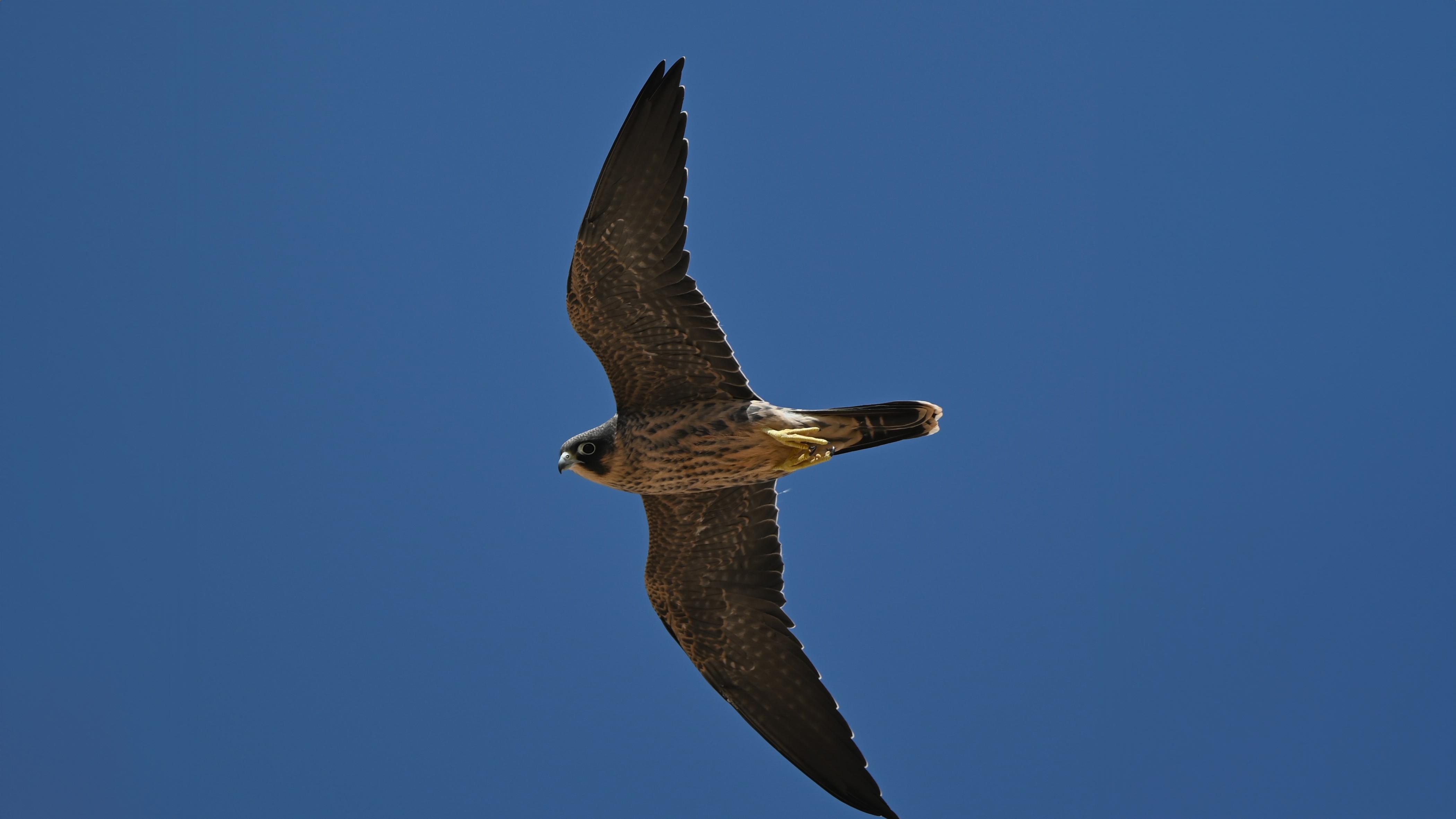Sooty falcons: Pioneering conservation efforts at Red Sea Global
On World Nature Conservation Day, we are reminded of the critical role we must all play in safeguarding the environment for future generations. This day serves as an excellent opportunity to celebrate and contribute to the preservation and regeneration of our natural world.
In this spirit, we turn our focus to the Sooty falcon, a remarkable species found in the Red Sea region. Listed as ‘Vulnerable’ on the IUCN Red List of Threatened Species, the Sooty falcon faces numerous challenges. Recent initiatives by Red Sea Global (RSG), however, offer hope for these majestic birds.
Innovative solutions
In the last two years, we have successfully installed 30 artificial Sooty falcon nesting sites, marking a global milestone in using such technology for this species. Satellite and GPS tracking revealed that adult falcons show strong fidelity to the nests, revisiting them annually. In contrast, juveniles tend to seek new sites. In both cases, the birds’ nesting site selection is based on food availability and habitat suitability.
Based on those criteria, only seven islands in the Red Sea offer suitable breeding grounds, with half the population nesting on Quman Island, one of more than 90 pristine islands at our flagship destination, The Red Sea. To enhance the falcons’ habitat, we deployed 10 artificial nesting sites in 2023 and 20 more in 2024 on a total of 14 islands. These initiatives support population growth and provide critical insights into nesting habits.
Moreover, our Bird Monitoring and Enhancement team has been instrumental in monitoring the Sooty falcon. In 2022 and 2023, the team tracked the migration of 20 Sooty falcons to Madagascar and back using GPS and satellite tags. This provided valuable data used to understand migration patterns and habitat, informing future conservation strategies.
While current advanced tracking focuses on Sooty falcons – observing breeding, hunting patterns, and juvenile survival – future surveys aim to monitor significant changes in bird numbers. This includes newly discovered breeding species, such as the Red-billed tropicbird, and breeding pairs of the declining Crab plover across the whole lagoon.
Innovative solutions from the SIDF Industrial Hackathon
In addition to GPS and satellite tracking, last year, we joined the Saudi Industrial Development Fund’s second Industrial Hackathon, which aims to attract young talent to develop creative solutions for the challenges faced by Saudi manufacturers. More than 5,500 applicants participated in three different tracks: design, production, and, for the first time, sustainability.
Recognizing the importance of sustainable innovation, RSG joined the hackathon as a challenge owner, focusing on the conservation of the Sooty falcon. Through this program, participants explored the use of high-tech materials and cutting-edge technology, including AI and 3D printing, to improve the Sooty falcon nesting habitat.
Seven teams presented their prototypes of artificial nesting sites, commonly called a nest box. We evaluated each box based on how closely it matched the temperatures recorded at natural nesting sites and how accurately it replicated the measurements taken from natural nests.
The winning team, RedNest, developed a groundbreaking 3D nest box inspired by historical Islamic architecture. The design incorporated natural ventilation openings, similar to those used in mosque ceilings, to cool the space without artificial cooling systems. The team’s final model and meticulous attention to detail provided a practical and sustainable solution for Sooty falcon conservation.
Looking ahead
Here at RSG, we are not only protecting the Sooty falcon but also setting a benchmark for conservation practices worldwide. Through these comprehensive efforts and initiatives, let us remember why conservation matters in the first place. While it secures the survival of species, the health of ecosystems, and the well-being of future generations of flora and fauna, it also ensures that future generations inherit a world rich in biodiversity; a privilege worth protecting.
But we at RSG are committed to going beyond conservation by actively enhancing and regenerating the natural environment. By continuing to innovate and push the boundaries of sustainability, we demonstrate our commitment to a thriving, resilient natural world.
About Red Sea Global
Red Sea Global (RSG) is a vertically integrated real estate
developerwith a diverse portfolio across tourism, residential,
experiences,infrastructure, transport, healthcare, and services. This
includes theluxury regenerative tourism destinations The Red Sea, which
beganwelcoming guests in 2023, and AMAALA, which remains on track to
welcomefirst guests in 2025.
A third destination, Thuwal Private Retreat openedin 2024. RSG has
also been entrusted with refurbishment works at Al WajhAirport, focused
on upgrading the existing terminal and infrastructure,and building a new
international terminal.
RSG is a PIF company and acornerstone of Saudi Arabia’s ambition to
diversify its economy. Acrossits growing portfolio of destinations,
subsidiaries, and businesses, RSGseeks to lead the world towards a more
sustainable future, showing howresponsible development can uplift
communities, drive economies, andenhance the environment.
www.redseaglobal.com
RSG is the visionary company behind some of the world’s most ambitious
development ventures, including luxury regenerative tourism destinations
such as The Red Sea and AMAALA.
Across its portfolio, RSG leverages the most innovative concepts,
strategies, and technologies to deliver projects that actively enhance
the wellbeing of customers, communities, and environments.



